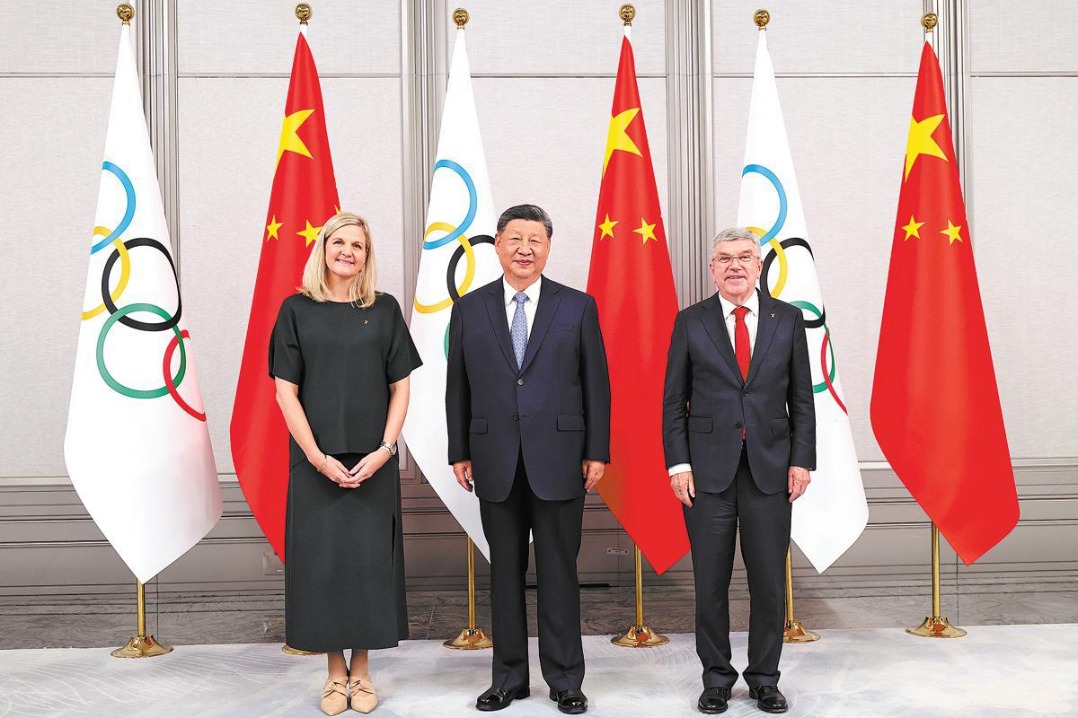Anti-corruption drive gathers more steam

A number of corrupt officials have been punished in recent times either according to the law or the Party's discipline or both, which shows the Party's anti-corruption campaign since the 18th National Congress of the Communist Party of China has gained in strength.
The separation of the Party's discipline and the country's laws is a new characteristic of governance and reflects the Party's determination to root out corruption from society, with the recent punishments given to corrupt officials being a strong proof of that.
The court cases of corrupt officials involve only their illegal activities, not violation of Party discipline. The trials are held strictly according to the law following the principle that everybody is equal before the law. And court judgments in corruption cases are based totally on the country's laws, indicating the authorities' respect for the rule of law.
Since the 18th CPC National Congress in November 2012, the Party's discipline inspection department has focused on investigating cases of Party discipline violations and passed on the clues of the suspects' illegal activities to the judiciary. The Party's 18th Central Commission for Discipline Inspection has clearly said that discipline inspection authorities should not act like public security or procuratorial organs, or courts within the Party. Instead, they should focus on disciplinary inspection.
The separation of Party discipline and the country's laws is conducive to effectively supervising not only government officials but also Party members while passing judgments in corruption cases strictly according to the law can prevent outside interference in court matters and manifest the dignity and fairness of the law.
Besides, the rule of law should be first established in an all-round way within the Party and government. And since many corruption cases have revealed that officials' first step toward corruption was violation of Party discipline, leading Party officials can be prevented from becoming corrupt and the overall risk of duty-related corruption remarkably reduced if the higher authorities tightened disciplinary restrictions on officials.
The new relationship between the Party's discipline and the country's law is another characteristic of the anti-corruption campaign. Many corrupt officials have actively turned themselves in and surrendered their ill-gotten gains in exchange for lenient punishments after their cases were transferred to the judiciary, which shows the Party's discipline inspection work has made judicial practice more efficient.
The Party's anti-corruption watchdog has become more professional by standardizing the procedure of discipline inspection. The working rules for discipline inspection organs, issued in January 2017, clearly stipulate the purposes and procedure of their pursuit.
The goal of discipline inspection is to make Party officials and members aware of their faults and liabilities, which will largely reduce the obstacles of judicial authorities in the investigation and evidence gathering process. And regulating, ruling and building the Party according to the law are a precondition and political guarantee for the rule of law, while their goal is to help officials and members to improve the Party's performance.
Late leader Deng Xiaoping once said the country's laws cannot be fully implemented without the implementation of the Party's laws and regulations. We have reached a stage where the focus should be on enhancing and expanding the achievements of the Party's anti-corruption campaign. Moreover, it is very important to deepen judicial reform and strengthen the professionalism of the Party's anti-graft watchdog, in order to consolidate the rule of law and Party governance, and tighten supervision of power according to the law.
The author is director of the Center for Anti-corruption Studies, China University of Mining and Technology, Beijing.
































